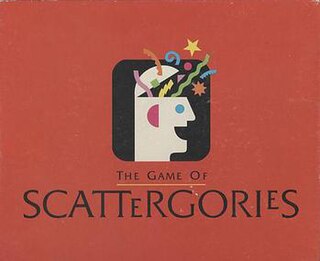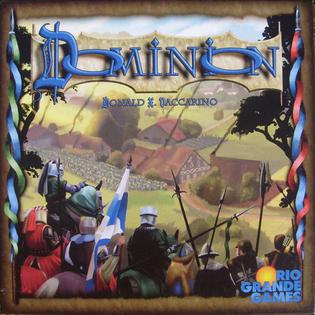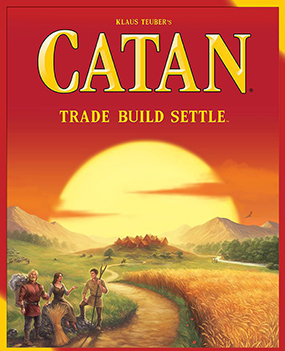Related Research Articles

A card game is any game that uses playing cards as the primary device with which the game is played, whether the cards are of a traditional design or specifically created for the game (proprietary). Countless card games exist, including families of related games. A small number of card games played with traditional decks have formally standardized rules with international tournaments being held, but most are folk games whose rules may vary by region, culture, location or from circle to circle.

Tarot is a pack of playing cards, used from at least the mid-15th century in various parts of Europe to play card games such as Tarocchini. From their Italian roots, tarot-playing cards spread to most of Europe, evolving into a family of games that includes German Grosstarok and modern games such as French Tarot and Austrian Königrufen. In the late 18th century French occultists made elaborate, but unsubstantiated, claims about their history and meaning, leading to the emergence of custom decks for use in divination via tarot card reading and cartomancy. Thus, there are two distinct types of tarot packs in circulation: those used for card games and those used for divination. However, some older patterns, such as the Tarot de Marseille, originally intended for playing card games, are occasionally used for cartomancy.
Borvo or Bormo was an ancient Celtic god of healing springs worshipped in Gaul and Gallaecia. He was sometimes identified with the Graeco-Roman god Apollo, although his cult had preserved a high degree of autonomy during the Roman period.

In a deck of playing cards, the term face card (US) or court card, and sometimes royalty, is generally used to describe a card that depicts a person as opposed to the pip cards. In a standard 52-card pack of the English pattern, these cards are the King, Queen and Jack. The term picture card is also common, but that term sometimes includes the Aces.
In computer graphics, a sprite is a two-dimensional bitmap that is integrated into a larger scene, most often in a 2D video game. Originally, the term sprite referred to fixed-sized objects composited together, by hardware, with a background. Use of the term has since become more general.

Alain Chamfort is a French singer of Breton origin.

Spanish-suited playing cards or Spanish-suited cards have four suits, and a deck is usually made up of 40 or 48 cards. It is categorized as a Latin-suited deck and has strong similarities with the Portuguese-suited deck, Italian-suited deck and some to the French deck. Spanish-suited cards are used in Spain, Southern Italy, parts of France, Hispanic America, North Africa, and the Philippines.

Briscola is one of Italy's most popular games, together with Scopa and Tressette. A little-changed descendant of Brusquembille, the ancestor of briscan and bezique, Briscola is a Mediterranean trick-taking ace–ten card game for two to six players, played with a standard Italian 40-card deck.

Shadows over Camelot is an Arthurian-themed board game designed by Serge Laget and Bruno Cathala, illustrated by Julien Delval and Cyrille Daujean. The game was unveiled by the publishers Days of Wonder at the 2005 American International Toy Fair and was more widely released in May and June 2005. The game was also published in French as Les Chevaliers de la Table Ronde and in German as Schatten über Camelot. In 2008, an expansion for Shadows over Camelot was released titled Merlin's Company.

Baroness is a patience or card solitaire that is played with a single deck of 52 playing cards. It is similar to other members of the Simple Addition family and is also distantly related to Aces Up.

Scattergories is a creative-thinking category-based party game originally published by Milton Bradley in 1988. The objective of the 2-to-6-player game is to score points by uniquely naming objects within a set of categories, given an initial letter, within a time limit. The game is based on a traditional game called "Categories".

Fantasy Flight Games (FFG) is a game developer based in Roseville, Minnesota, United States, that creates and publishes role-playing, board, card, and dice games. As of 2014, it is a division of Asmodee North America.
A microgame is a board game or wargame packaged in a small set.

Sáhkku is a board game of the Sami people. The game is traditional among the North Sámi, Skolt Sámi, Inari Sámi and Lule Sámi but may also have been played in other parts of Sápmi.
Patric Denis O'Brien, commonly known as Paddy O'Brien, is a New Zealand international rugby union referee, and former head of the International Rugby Board's Referee Board.

Dominion is a card game created by Donald X. Vaccarino and published by Rio Grande Games. Originally published in 2008, it was the first deck-building game, and inspired a genre of games building on its central mechanic. Each player begins with a small deck of cards, which they improve by purchasing cards from a common supply that varies from game to game. Cards can help the player's deck function, impede their opponents, or provide victory points. As of December 2022, fifteen expansions to the original Dominion have been released.

Catan, previously known as The Settlers of Catan or simply Settlers, is a multiplayer board game designed by Klaus Teuber. It was first published in 1995 in Germany by Franckh-Kosmos Verlag (Kosmos) as Die Siedler von Catan. Players take on the roles of settlers, each attempting to build and develop holdings while trading and acquiring resources. Players gain victory points as their settlements grow and the first to reach a set number of victory points, typically 10, wins. The game and its many expansions are also published by Catan Studio, Filosofia, GP, Inc., 999 Games, Κάισσα (Káissa), and Devir. Upon its release, The Settlers of Catan became one of the first Eurogames to achieve popularity outside Europe. As of 2020, more than 32 million copies in 40 languages had been sold.
A deck-building game is a card game or board game where construction of a deck of cards is a main element of gameplay. Deck-building games are similar to collectible card games (CCGs) in that each player has their own deck. However, unlike CCGs, the cards are not sold in randomized packs, and the majority of the deck is built during the game, instead of before the game.

Aluette or Vache ("Cow") is an old, plain trick-taking card game that is played on the west coast of France. It is played by two teams, usually of four people, but sometimes also of six. It is unusual in using a unique pack of 48 Spanish playing cards and a system of signalling between playing partners. The French colloquial names for the game, jeu de la Vache or Vache, refer to the cow depicted on one of the cards.
References
- ↑ What's a Ludeme? at parlettgames.uk. Retrieved 12 November 2021.
- 1 2 Foundations of Digital Archaeoludology ed. by Cameron et al. (2019). Retrieved 12 November 2021.
- ↑ Borvo (1977) , p. 18